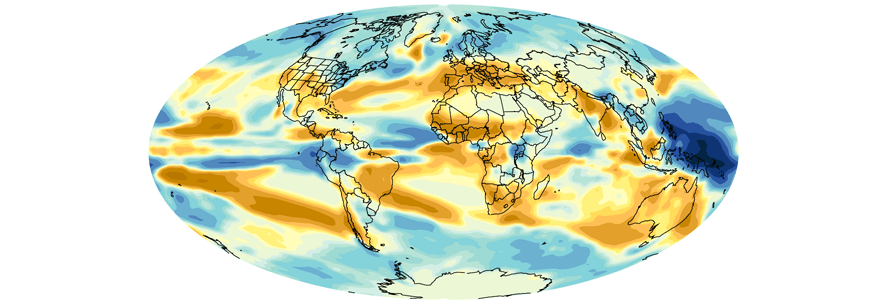By Rob Mitchum // February 3, 2015
The greatest scientific challenges of our time aren’t contained by national borders. Subjects such as cancer and climate change affect billions of people globally, inspiring international efforts to better understand these phenomena and find more effective ways of reducing their harmful effects. Computation has the power to facilitate and accelerate these worldwide collaborations, providing the tools and analytic power for scientists in the developed and developing world alike to better understand these problems both locally and globally.
In the January edition of our 2014-2015 Inside The Discovery Cloud Speaker Series, we brought together two CI fellows using and developing innovative computational tools to study these important topics in Africa. Olufunmilayo Olopade, CI Senior Fellow and Walter L. Palmer Distinguished Service Professor of Medicine and Human Genetics at University of Chicago Medicine, talked about her work studying the genetics underlying racial disparities in breast cancer outcomes between African-American and Caucasian women in the United States. From whole genome sequence analysis on CI’s Beagle supercomputer to cloud-based data pipelines built with Globus Genomics, Olopade described how computation is integral to her research from Chicago’s South Side to Sub-Saharan Africa.
Climate change is another important scientific topic with both global and local implications. Thus far, much of the modeling efforts on climate and its impacts upon economics, agriculture, and other sectors has focused on the global scale. But as computer models reach higher and higher resolution, it becomes increasingly possible to study and begin strategizing on how to adapt to changes in climate on the local scale as well. Joshua Elliott, CI Fellow and Research Scientist with the Center for Robust Decision-Making on Climate and Energy Policy (RDCEP), introduced several tools developed at RDCEP that allow scientists around the world to easily access and work with data from the most powerful climate models. A plan to introduce one of these tools — FACE-IT, or the Framework to Advance Climate, Economic, and Impact Investigations with Information Technology — in West Africa last summer fell through due to the ebola crisis, but a demo for international researchers working with the Agricultural Model Intercomparison Project (AgMIP) was successfully conducted the day after Elliott’s Discovery Cloud talk.
The next installment of the Inside the Discovery Cloud Series will be held February 18th, with CI Senior Fellow Charlie Catlett and the School of the Art Institute of Chicago’s Douglas Pancoast discussing “Urban Sensing with the Array of Things.”

